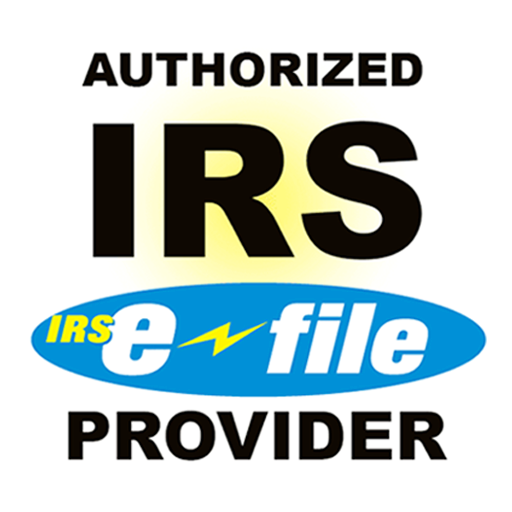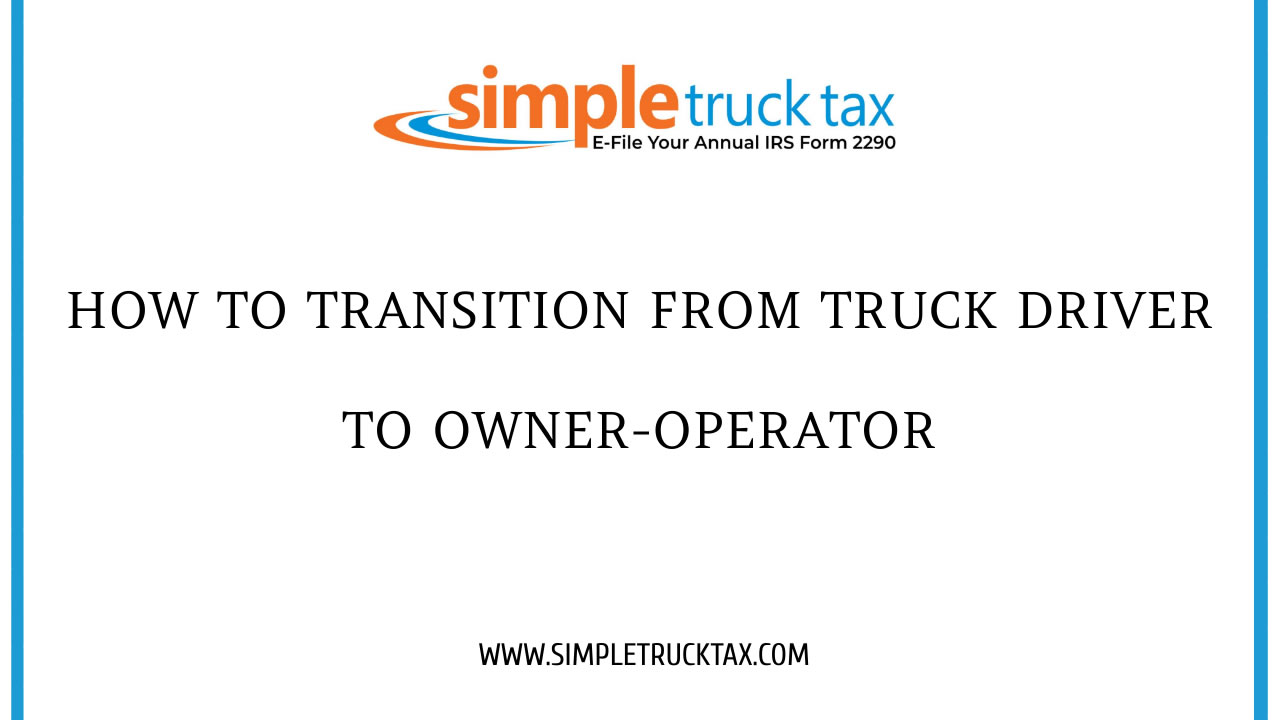09-26-2024
How to Transition from Truck Driver to Owner-Operator
Transition from Truck Driver to Owner Operator: A Step-by-Step Guide
Transitioning from truck driver to owner operator is a major career move, with just as many opportunities as it poses challenges. Being a company driver ensures regular paychecks and predictable routes, whereas becoming an owner-operator provides greater independence and flexibility with your schedule, higher earnings potential, and much more. However, the trip needs much preparation and a good business sense coupled with a proper know-how of the business and the industry. This article is to take you through the necessary steps you ought to make for effective transition.
Assess Your Readiness and Set Clear Goals
Before you make that big move, take stock of whether you are prepared to accept additional responsibility of owning and running a trucking business. Owner-operator isn't just driving; it's owning and running a business. Make sure you're ready to take on the responsibility in terms of administrative work, financial planning, and even operational decisions.
Ask yourself:
- Is there enough in savings to cover initial costs and slow periods?
- Am I going to be okay with the ups and downs of a business?
- What are my long-term goals operating as an owner-operator?
Clearly defined goals-for example, maximizing earning potential, achieving a better work-life balance, or owning multiple fleets-will keep you focused on making the correct decisions and taking necessary actions.
Build a Strong Financial Foundation
You would need to make significant upfront purchases for or leases of trucks, insurance, permits, and miscellaneous vehicle maintenance. Additionally, you'll want to build a cushion in case you have any downtime and unexpected expenses.
Start first by
Aggressively saving to be prepared to be able to put down at least 20-30% of the total price of your truck if you need to make a down payment on one that you buy.
- Building a good credit record: You are going to get financing terms that will most likely support you in repaying the truck purchase.
- Budgeting: Determine what you think you are going to spend every month on fuel, maintaining, and insurance and paying on the truck plus taxes, and this is going to get matched up to what you could be earning.
You should also hire a financial advisor who has been working with truckers. They can guide you to manage your finances for long-term success.
The Right Truck
One of the most significant decisions that an owner-operator is going to have to make is the truck itself. There are so many things riding on this one decision - not to mention having the wrong truck can really bog down profits and operational effectiveness.
For example, think about this:
- New vs. Used: Newer trucks are completely covered with warranties and the latest technology. However, it does cost more money. A used truck, taken care of, often saves money. Get it inspected and drive it thoroughly to discover any hidden expensive problems. Among the top operational costs is fuel efficiency. Therefore, invest in a truck that has a good record for fuel efficiency. In fact, so many trucks come fully equipped with advanced technologies to save on fuel, which can shave off the operating costs in a relatively short period of time.
- Type of freight: Depending on the type of cargo you plan on hauling, will determine what type of truck you'd want to go with. For example, a flatbed, dry van, and refrigerated truck will all be different. So, decide on a truck in mind according to your hauling objective.
Secure Financing and Insurance
After you have already decided to purchase a truck, financing is crucial. You most likely won't pay for the truck in cash so you must take into account financing options. The interest rates vary from bank, credit union, and specialty truck financing service according to your credit score and deposit made.
Additionally, you have to cover other types of insurance as the owner-operator. These insurance coverages include:
- Primary liability insurance: Generally compulsory, this insurance pays if your truck causes damage or injuries through an accident.
- Physical damage insurance: It covers damage to your truck and all other unwanted accidents.
- Cargo insurance: This insurance would cover the freight if it gets damaged or stolen.
- Occupational accident insurance: In case you do not have worker's compensation, work-related injuries will be covered.
Buy the cheapest insurance rates and make sure you are properly covered.
Be Aware of and Comply with the Regulations
Owner-operation entails compliance with trucking regulations and legal requirements. These include acquiring the necessary permits, licenses, and registrations.
The following is a list of notable regulations to comply with:
- USDOT Number: Necessary should you plan to conduct business in interstate or to haul hazardous materials
- Operating Authority: Such a license is given to a firm that is engaged in hauling freight.
- Heavy Vehicle Use Tax (HVUT): For trucks that weigh more than a certain weight, you have to file Form 2290 and pay an annual HVUT.
- International Registration Plan (IRP): If you cross interstate, you should register in the IRP, which pools your fees from one state to another.
- International Fuel Tax Agreement (IFTA): This simplifies filing fuel consumption reports and settling taxes in all states.
Learn Federal Motor Carrier Safety Administration to save yourself from subsequent penalties or lawsuits.
Developing Good Shipper/Broker Relations
An owner-operator will always look for the steady flow of work, constantly providing the employment opportunities. Keeping consistent communication with reliable shippers, freight brokers, and load boards is crucial to acquiring solid, long-term contracts. Networking helps you find better paying jobs also and negotiate better rates.
- Load boards: This is a good way to get started in finding loads. However, the rates usually fluctuate and the competition is pretty tight, so don't count on this as the only thing.
- Brokers: Then there are freight brokers, to whom you can connect you with regular loads. Over time, these relationships that have been built can lead to higher-paying contracts.
- Direct shippers : You would want to work directly with the shipper after some time and not through a middleman so that you get the maximum amount.
Time and Business Management Efficiency
As an owner-operator, you have to manage your time effectively as you are responsible for all the administrative tasks such as invoicing, accounting, maintenance, and also you have to control your driving hours, rest periods, delivery schedules, and so on.
You might use:
- Fleet management software : You can see how much fuel is being used and when maintenance is required, among other such costs.
- Load planning tools : Optimizes routes to increase utilization and plan efficient loads to reduce empty miles.
- Accounting software : QuickBooks or similar can manage income, expenses, taxes, and payroll.
Balancing your operational and business responsibilities will be a critical factor for your success.
Continuously Learn More
The trucking industry never stands still, only constantly evolving with regulations, technology, and market trends guiding the horizon. An owner-operator must be well aware of what to do to stay competitive: join trucking associations, participate in forums regarding the industry, and always seek learning opportunities in business practices to keep ahead of the curve.
Becoming an owner-operator can present more control, higher revenue earnings, and the satisfaction of owning and operating your own business. With that though comes risk and liability, so requires preparation and commitment. Once you take these measures, stay up-to-date and have in place a solid financial foundation, then you are good to go with walking a successful owner-operator career in trucking.
Note: For more information, visit IRS website


